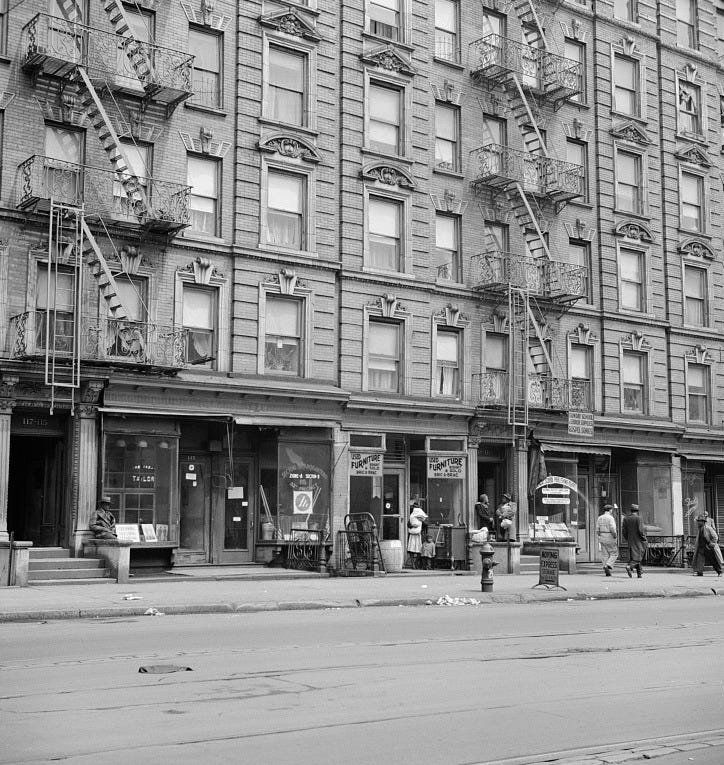The second installment detailing the misadventures of furniture salesman Ray Carney, this delightful novel continues the stories of characters introduced in “Harlem Shuffle:” A crooked cop has finally succumbed to desperation and despair, a somewhat rehabilitated pyromaniac is now into making movies, a ruthless gangster finally meets his match, and our hero tries to reconcile with his own past. This is 1970’s Harlem, rife with corruption and crumbling communities. The book consists of three loosely connected parts which could stand alone as their own novellas. Part 1 is about how Ray Carney’s fatherly attempts to snag Jackson Five tickets for his daughter drags him back into the criminal underbelly of New York. In Part 2, a photographer Carney employed for kompromat in the first novel produces his first movie but has a bit of a setback when the headlining woman disappears. In the final section Carney goes on a kind of personal social crusade to sniff out the perpetrators of an arson which seriously injured a boy, with unexpected consequences. The “old crook” who goes by “Pepper” is the hero of the novel, in my opinion, featured prominently in two of the three parts. He’s not a man of many words but of principle, holding himself to a “Crook Manifesto,” a kind of old-school code of honor among criminals that even he sees is slipping away with increasingly brutal and ruthless gangsters and politicians on the rise.
In addition to learning peripheral character backstories, I discovered various euphemism for dying and Whitehead’s ability to find laugh-out-loud humor in unexpected places. His description of a broken juke box in a run-down bar which “flickers in Morse code, ‘this place is a dump.’” Seeing the Jackson 5 for the first time, “Carney’s upbringing was such that he couldn’t help but opine that flare trousers were well suited for quick access to an ankle holster.” Finally, a bartender who relays messages has “not really a code but a species of atrocious penmanship.”
Whitehead’s delightful prose and social commentary is both thrilling and gut-wrenching. How was graffiti scrawled on subway cars any different than the names of ruthless businessmen whose names were written on street signs? Both wanted to be “known.” Arsonist as artist: “it wasn’t enough to conceive it; you had to make it.” An aging gangster likened to an old hang-out: “a faded institution taking up space.” A Jewish character fleeing pogroms and massacres in Russia comments that “America was in the massacre racket, too…but they concentrated on Negroes and Indians for the most part. He figured they’d come for him once they ran out, but that might take years.” And comparing “professional” wrestling with life: are the matches really rigged “if the audience is in on it too, is it rigged or merely the world as it is?”
While the book is in part an elegy to the way things were, when “folks in Harlem looked after each other,” it doesn’t veer into nostalgia; the story is quite clear-eyed about the effects political corruption, misguided public policies, wanton police brutality, and gangster violence had on the everyday people caught in the crossfire at that time. A city on the decline, where savvy real estate developers can swoop in and buy torched properties on the cheap to erect subsidized housing, then sell them back to the city at an inflated price while regulators and politicians look the other way, everyone involved taking a cut. Ray Carney’s misadventures expose the complex web connecting everyone from the Democratic ward candidate to the rising ruthless gangster expanding his territory. While I can’t say it’s the most uplifting assessment of humanity, Whitehead’s dark humor is always just below the surface: “White man ain’t killed me yet,” is Pepper’s daily call to arms. It’s through this fatalistic sense of humor that Whitehead encapsulates the rugged and resilient mindset of a Harlemite who is an heir to more than a century of systematic racial discrimination and brutality. Now that we live in a country where systematic discrimination and brutality have become national policy, let us take a page out of Crook Manifesto and not forget about a time when “folks…looked after each other.”






